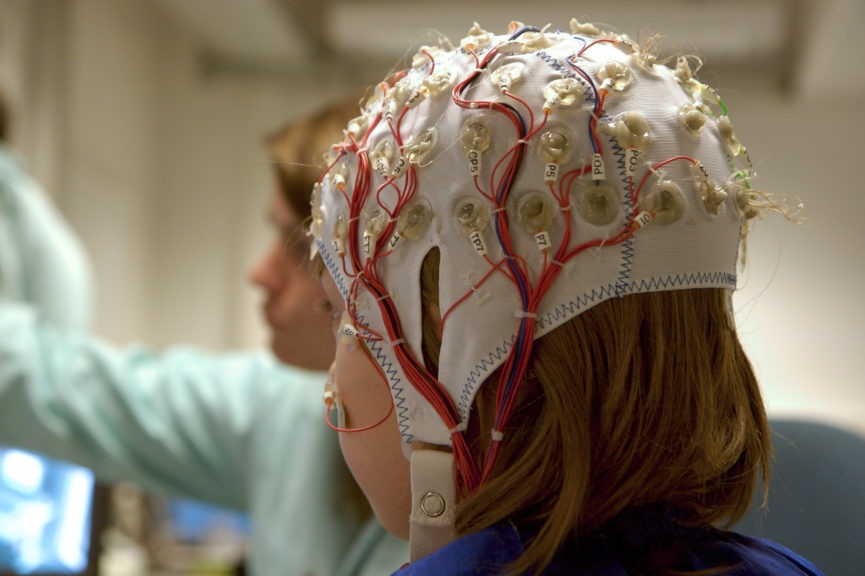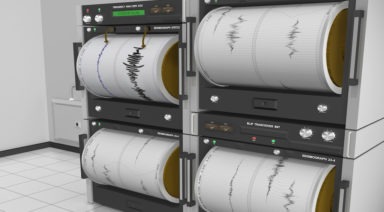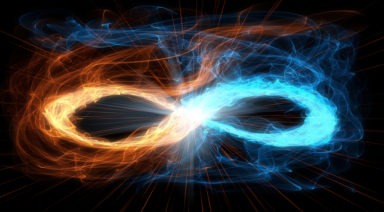Brain Waves Study Shows Humans Can Sense Earth’s Magnetic Field

In a CalTech study, scientists determined that human brains do in fact have a sixth sense many have long suspected; magneto-reception. Much like the various animals that use the planet’s magnetism for navigation, the study showed that humans are subconsciously affected by Earth’s ever-shifting magnetic field.
By placing participants inside of an electromagnetic-shielding Faraday Cage wrapped with powerful square “Merritt coils,” researchers were able to recreate a magnetic field on par with the planet’s, which they were able to manipulate. They then measured subjects’ brainwaves using EEG caps while moving the magnetic field clockwise, counterclockwise or not at all.
Unsurprisingly, when measuring the subject’s alpha brain waves, scientists noticed a response tied to the various shifts in their Earthlike magnetic field. The only anomaly they detected was that these alpha waves were unresponsive to a rotating magnetic field that pointed toward the ceiling.
Though not entirely sure why this might be the case, scientists said it may be due to the brain not responding to confusing magnetic stimuli. All subjects involved came from the planet’s northern hemisphere and responded only to fields pointing the same way the planet’s magnetic field points in that half of the world. They said they would need to conduct tests with people from the southern hemisphere to confirm this theory.
Researchers involved also say they believe this ability is a defunct, leftover trait from our past; a “lost, ancestral magneto-sensory system.”

But others have long suspected that humans are far more sensitive to shifts in the Earth’s magnetic field than we’re even aware of. This is largely due to the fact that it’s been well-documented that human brains, like other animals, contain large amounts of magnetite – a magnetic mineral believed to act as a receptor to the Earth’s magnetic field.
Scientific studies on magnetite and their reaction to extremely low frequency (ELF) waves have shown that certain frequencies can impact mood and cause physical ailments such as depression, anxiety, nausea, and headaches. But magnetic fields at slightly higher frequencies can have the complete opposite effect, resulting in anxiety relief and stress reduction.
When it comes to large scale effects of the Earth’s magnetic field on the population at large, similar types of consistent behavior correlated with magnetic fluctuations have been observed. During geomagnetic storms and periods of drastic magnetic change, such disparate actions as increased suicide, fluctuations in the stock market, and upswings in birth rates have been recorded.
And now, some studies are starting to observe even more bizarre behavior related to our newly discovered magneto-reception: telepathy.
For more check out our video Brain Crystals and Psychic Powers:
Psychic Abilities May Stem From a Field of Consciousness

Ever have the feeling that you know you’re being watched? Or the feeling of thinking about someone just before they call? Some believe these feelings are merely coincidental or just happenstance, but the fact that they are common and something everyone can relate to, leaves open the possibility that there could be a metaphysical mechanism at play. Now, researcher Rupert Sheldrake says he believes these occurrences are due to a psychic phenomenon that is evidence of a collective consciousness and he’s found this theory to show statistical significance.
Sheldrake is most famous for his theory of morphic resonance, a concept that revolves around psychic capability, which he believes is innate in humans and animals. Morphic resonance states that processes and behavior in nature, particularly learned behavior, can be inherited and transmitted psychically. This theory has made him somewhat of a pariah in the scientific community, which labelled him a heretic for entertaining such a seemingly nebulous concept. Nevertheless, he embraces the criticism and continues to pursue his research.




































